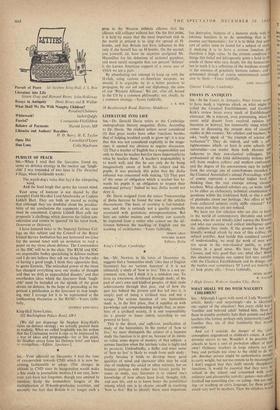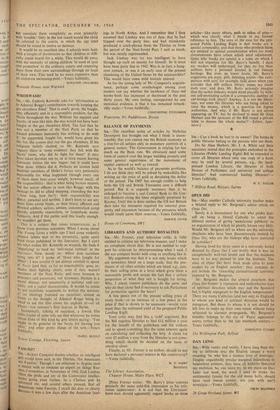WHAT SHALL WE DO WITH NAUGHTY CHILDREN?
SIR,—Alt)lough I. agree with most of Lady Wootton's article, urely—and surprisingly—she is idealising one aspect of the situation? Not every child has 'familiar and beloved adult' behind him. Most I" those in trouble probably hate their parents and their teachers (the former perhaps only temporarily) and'if familiar they arc of that familiarity that Urec(15 contempt. And yet 1 concede the danger of the atmosphere engendered at children's courts. A corn' promise occurs to me. Wouldn't it be possible ft'r schools to have a sort of probation officer of their own? Ordinary teachers in large schools are too busy, and perhaps too close to the child to do the job. Another person might be authoritative enough 7 to carry weight, but not too remote to be meaningles5. I don't suggest that they fulfil merely disciplino) functions. It would be essential that they werc valved in the school and concerned with sonic, ordinary and pleasurable activity; games—not officio! football but something else—or acting—but not ing—or teaching an extra language, for these WC°, could very well be teachers. Then the children worilo
not associate them completely or even primarily With 'trouble.' Only in the last resort would the child be referred to the courts, in which the age limit Should be raised to twelve or thirteen.
It would be an excellent idea if schools were built With a couple of dormitories so that children in diffi- culty could board for a while. This would do away With the necessity of taking children 'in need of care and protection' to the ordinary courts and removing them from their own surroundings through no fault of their own. This need be no more expensive than an elaborate swirnming-pool.—Yours faithfully, ROSALIND cHALMERS Beausale House, near Warwick



































 Previous page
Previous page